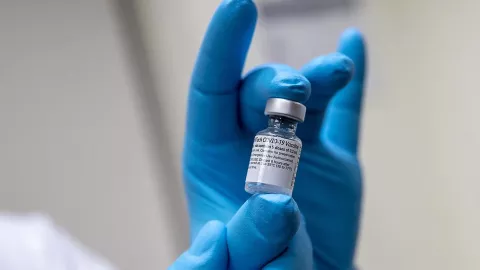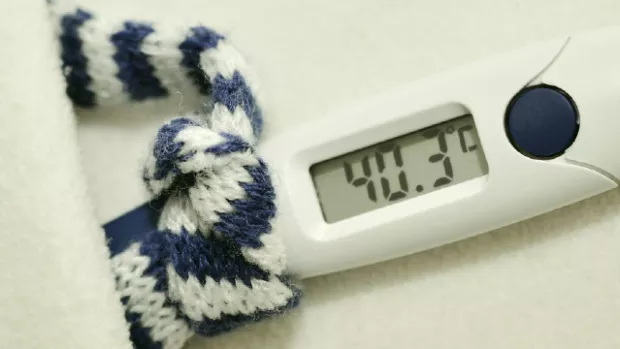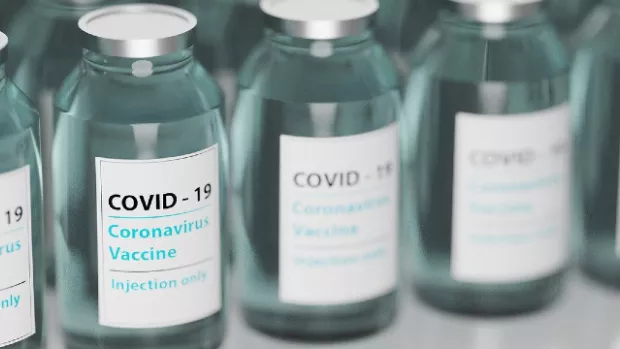
New study explores how different DMTs affect COVID-19 vaccine response
In May 2021, researchers in Israel published the results of a small study exploring how well the Pfizer-BioNtech COVID-19 vaccine protects people with MS taking cladribine, fingolimod or ocrelizumab.
This story was updated 20 July with news of a second study.
Previous studies have shown COVID-19 vaccines are safe for people with MS who are taking disease-modifying therapies (DMTs). But they didn’t tell us how well the vaccines work for people taking different DMTs.
It’s possible that people on some MS treatments might have a reduced response to the vaccines. This could happen because vaccines work by triggering an immune response and DMTs work by dampening down the immune system.
Some DMTs, including cladribine, fingolimod and ocrelizumab, do this more than others. So researchers from Israel studied data from people with MS taking these DMTs to see how their immune systems responded to the Pfizer-BioNtech vaccine.
What did the researchers do?
The researchers studied data from 125 people with MS who had received both doses of the Pfizer-BioNtech vaccine. They compared this group to 46 people without MS.
People with both relapsing and progressive MS were included. 23 people were taking cladribine, 26 had received fingolimod and 44 ocrelizumab. The rest were not taking any DMT.
One month after their second vaccine dose, they all provided blood samples so the researchers could look for the presence of a type of immune cell called an antibody.
Antibodies are produced to fight a specific virus. So higher levels of antibodies following the vaccine could show your immune system is mounting a response to protect you from COVID-19.
What did they find?
The results showed responses to the vaccine were different for people taking different DMTs.
Cladribine
All of the people treated with cladribine showed high levels of COVID-19 antibodies. In fact, their antibody levels were similar to people taking no DMT and people without MS.
This suggests if you’re taking cladribine, it shouldn’t affect your response to the COVID-19 vaccine.
Fingolimod and ocrelizumab
Most people taking fingolimod or ocrelizumab had much lower levels of antibodies. Only 4% of the people on fingolimod and 23% of the people on ocrelizumab had enough antibodies for the researchers to consider the response as protective.
This may suggest people taking fingolimod or ocrelizumab get less protection from the vaccine. But although antibody levels give a good indication of the level of protection, they do not tell the whole story.
Antibodies aren’t the only immune cells that can help your immune system fight a virus. And this study hasn’t looked at the response of those other cells, like T and B cells. This is really important. It might be that if you take ocrelizumab or fingolimod, your immune system responds to the vaccine in other ways.
Watch this space
This research only studied small numbers of people taking each DMT, which makes it hard to draw definitive conclusions.
For example, when the researchers looked only at people on ocrelizumab who produced antibodies, they found higher levels of protection if the gap between the most recent dose of ocrelizumab and receiving the vaccine was longer. So this interval might be important, but data from 10 people aren’t enough to know either way.
We also don’t know whether we’d see the same results for the other COVID-19 vaccines currently being used in the UK.
But new studies on COVID-19 and MS are being published all the time, so we should get answers to some of these questions soon.
Advice from our expert medical advisers
Our expert medical advisers have considered the findings of the study and have not changed their advice on vaccination.
They continue to advise vaccination for everyone with MS including people on these DMTs. Until we know more about the vaccine, they recommend everyone with MS continues to follow government advice to reduce the risk of catching and transmitting COVID-19 even if they have received a vaccine for COVID-19.
More data emerging
In June, another small study looked at antibody levels after two doses of either the Moderna or Pfizer-BioNTech vaccine. Just like the Israel study, the researchers compared antibody levels in people with MS on different DMTs with people not taking a DMT. But this study didn’t count a certain level of antibodies as ‘protective’.
For most DMTs, antibody levels were no different to people not taking a DMT. But people taking two types of DMT did have lower levels of antibodies:
Ocrelizumab and rituximab
11 people taking a type of DMT called an anti-CD20 mono-clonal antibody produced lower levels of antibodies. Seven were taking ocrelizumab and four were taking rituximab.
Fingolimod and siponimod
Three people taking a type of DMT called an S1PR modulator produced lower levels of antibodies. Two were taking fingolimod and one was taking siponimod (Mayzent).
These findings support the data from Israel. This study is also really small. And similar limitations come into play. But with more information like this, we start getting a better idea of whether certain DMTs might affect the protection you get from your COVID-19 vaccine.




